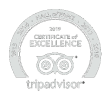
With the support of the Ulster-Scots Agency, The Linen Hall will be hosting its fourth annual Ulster–Scots writing competition this summer.
There will be two competition categories, one for prose and one for poetry. The winner for each section will receive £500 and one runner-up for each section will receive £250.
The winners will be announced during the Ulster-Scots Language Week in November and the winning entries will be published in a special edition anthology.
A distinguished panel of judges has been assembled to adjudicate: Professor Wesley Hutchinson, Dr Jennifer Orr, and Matthew Warwick.
The deadline for entry is Friday 30 August 2024 at 5 p.m., and below you can find the Entry Guidelines.

Professor Wesley Hutchinson
Professor Wesley Hutchinson was born in Harryville in Ballymena and is Professor Emeritus at the prestigious Sorbonne Nouvelle University in Paris. He was educated at Ballymena Academy and obtained a PhD from Trinity College Dublin before embarking on a distinguished academic career. His academic portfolio includes being Professor of Irish Studies at the School of English, Sorbonne Nouvelle, where he was also Director of the Irish Studies Research Group. A former President of the SOFEIR (Société Française d’Etudes Irlandaises), he is a leading academic in the field of Ulster-Scots and author of Tracing the Ulster Scots Imagination (2018). Recent work has included the Internet site <makingnorthernireland.co.uk>, a presentation of Ulster-Scots at the Home Rule period, in collaboration with Nerve Centre.
Dr Jennifer Orr
Dr Jennifer Orr is Senior Lecturer in eighteenth-century literature at Newcastle University and Vice-President of the British Association of Romantic Studies (BARS), the UK’s leading society for the study of Romantic-period literature. She is lead investigator on ‘Transatlantic Networks 1800-1845’, a digital editing project compiling letters from Ulster migrants including the Greyabbey-born David Bailie Warden who became the American Consul at Paris. She teaches a popular Honours-level module at Newcastle University called ‘Enlightened Romantics’, which allows students to study the poetry of Robert Burns, James Orr and Samuel Thomson. She completed her PhD at the University of Glasgow in 2011 within the Centre for Robert Burns studies, and her thesis on Burns’s Ulster-Scots contemporary Samuel Thomson was published as Literary Networks and Dissenting Print Culture (2016). She has presented widely on Ulster-Scots and Scottish literary traditions and published a scholarly edition of literary correspondence from the Ulster circle of Samuel Thomson (2012). She has an essay in the recently published Oxford Handbook to Robert Burns, edited by the renowned Burns scholar Gerard Carruthers, and a forthcoming chapter on Ulster transatlantic migration and cosmopolitan politics in the forthcoming Routledge History of Irish America.
Matthew Warwick
Matthew Warwick is from the townland of Maxwells Walls, near Kells & Connor in County Antrim. He studied history at Queen’s University Belfast and has a PGCE in Primary Education from the University of Ulster. After several years of teaching, he became Education Officer with the Ulster-Scots Community Network, a post he has held for over sixteen years. In this role, he delivers talks and presentations to schools, community groups and tourists about different aspects of Ulster-Scots history, heritage, culture and language. Born and reared in rural mid-Antrim, Matthew was immersed in the Ulster-Scots tongue from a young age, as his elderly grandparents on the family farm were native speakers in the truest sense. In fact, neighbours on the adjacent farm collected and compiled their own list of local colloquial words and phrases, which was eventually published as Barnish: Co. Antrim Dialect Dictionary in 1993. Matthew’s grandparents were the inspiration for and central characters in his popular Ulster-Scots children’s book, Fergie an Freens oan the Fairm, first printed in 2011.

The Linen Hall (Belfast Library And Society For Promoting Knowledge) is registered with the Charity Commission for Northern Ireland NIC 104 564.